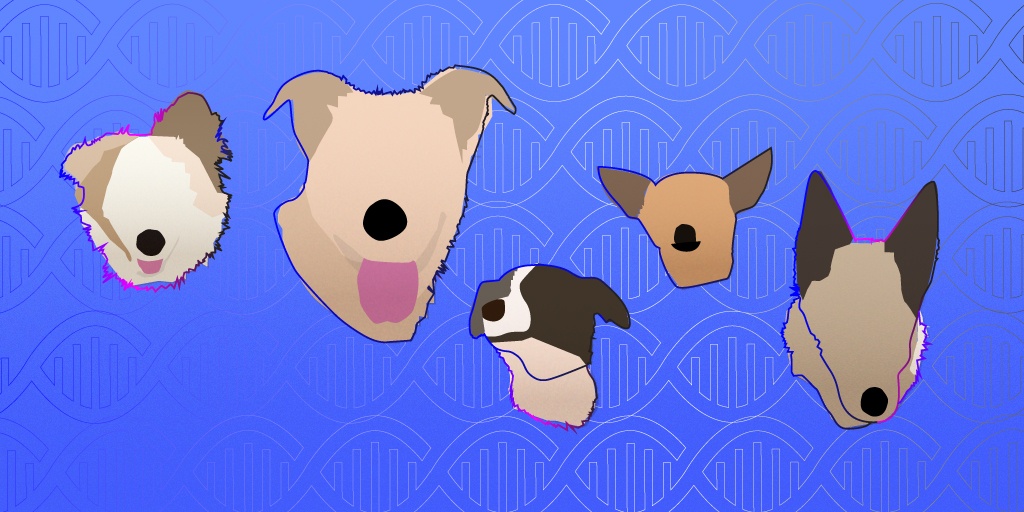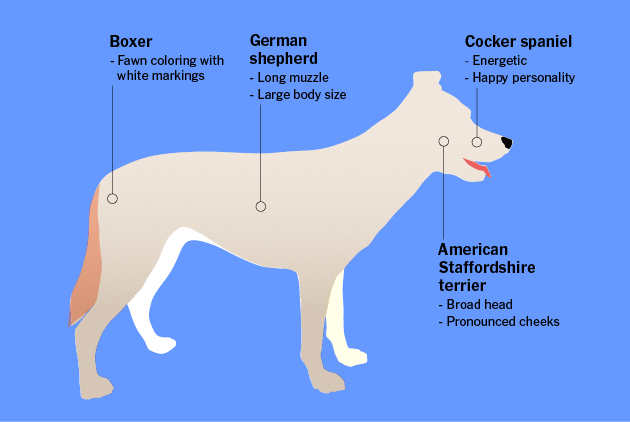If your pup’s parentage is perplexing, a dog DNA test could reveal its ancestry. We dug into 17 products, consulted five genetics experts, and collected slobber from five dogs to find that Embark Breed and Health Kit’s sizable breed database, wide array of inherited-disease screenings, and reliable customer support mark it as the best dog DNA test.
Who this is for
When I see a dog of an unfamiliar breed, I play a private game of “Guess Who?” and try to match its features to various breed characteristics. That dog’s chest is shaped like a wasp, so maybe it’s part whippet. But it also has a saddle coat and a long muzzle; maybe it has some German shepherd, too.
Guessing a dog’s background can be entertaining, but its appearance may be the greatest con in the animal kingdom. “We really like to play the [guessing] game,” said Dr. Jessica Hekman, a veterinarian and dog genomics expert, during a recent lecture. “It’s funny how we interpret how dogs look, and how it doesn’t necessarily have a whole lot to do with what’s in there.” Appearances are so confusing that even dog experts are outwitted. In a 2012 study of 100 shelter dogs that surveyed 5,922 dog professionals, the professionals correctly guessed a dog’s prominent breed just 27 percent of the time. And a 2015 study across four shelters reported that DNA tests determined that one in five dogs were pit bull mixes, while staff had guessed that half of the dogs were pit bulls. (Both studies used Wisdom Panel technology.)
If experts fail so spectacularly at interpreting dogs’ appearances, there’s little hope for the rest of us. Facebook groups like “This is BS and Embark Has A Personal Vendetta Against Me” and “Sounds like Wisdom Panel results, but okay” poke fun at the shocking, Maury–esque paternity reveals.
To determine breed results, a dog DNA testing company collects a sample from a subject and loads the information onto a DNA reader, known as a chip. Then it genotypes the sample along targeted gene points, known as markers. A computer algorithm reads the markers and identifies billions of possible ancestry combinations before interpreting the most accurate solution. Finally, the lab spits out the solution to a mixed-breed dog’s mix. (Pet owners may pay an additional $50 to $100 for inherited-disease detection.)
These breed ancestry DNA tests are different from similar tests marketed specifically to breeders; the latter are sometimes more affordable, but they’re too specific and granular for most people. For example, the American Kennel Club offers a $45 DNA test, which doesn’t identify the breed of the dog but rather its exact parentage, as a way of supporting the club’s breeding program and confirming AKC registration. Embark and Wisdom Panel (through Optimal Selection) each offer a variant of their tests for breeders; these also won’t tell you what breed of dog you have but instead offer genetic health testing relevant to an already known breed. And they will give you information on a breed’s physical traits, as well as help you avoid inbreeding.
The AKC cautions pet owners about using consumer-brand dog genetics tests to make health-related predictions for their dogs, because the results leave substantial room for interpretation. The AKC says the “correlation [to disease] doesn’t mean causation, so a gene that often occurs with a particular disease might not cause it.” The group suggests considering the dog’s lineage, in addition to the test results, to gain a better understanding of potential health risks for your pup. (Wirecutter adds that a responsible breeder should be willing to discuss the results with you prior to your committing to a dog.)
Breeder opinion on these consumer-facing products is mixed. In online forums, some say they use Embark for verifying the health status of a dog, while others cite the price and slow processing times as barriers. Some breeders also prefer more traditional, already established and trusted testing companies, such as the Orthopedic Foundation for Animals and the AKC.
If you’re in the process of buying a dog from a breeder, either to get an AKC breed or a mix that’s in high demand, breed ancestry DNA tests can be a useful tool for confirming what the seller is telling you before you spend a large sum on a pup. (Some breeders do test their litters before selling their pups, to identify preferred genetic traits and to limit inbreeding). If you and the breeder are both prepared to wait the requisite three weeks or so for the results, a test can confirm that your labradoodle is in fact half “labra” and half “doodle” and at limited risk for commonly inherited diseases. But keep in mind that some of the results won’t always be 50/50 for designer dogs (thanks to genetics) or may include results from related dogs in the breed group—the genetic lineage of dogs is long, and the breeding record is less so.
If, based on your dog’s looks, you think you have some idea of its breed, understand that the answer may be surprising. And if you’re just plain curious about the breed composition of your mutt, mixed-breed, shelter, or designer dog (not that it’ll make you love them any more or less, of course), there are solid options that can provide a clearer picture of its genetic background.
[Read the rest on Wirecutter]


